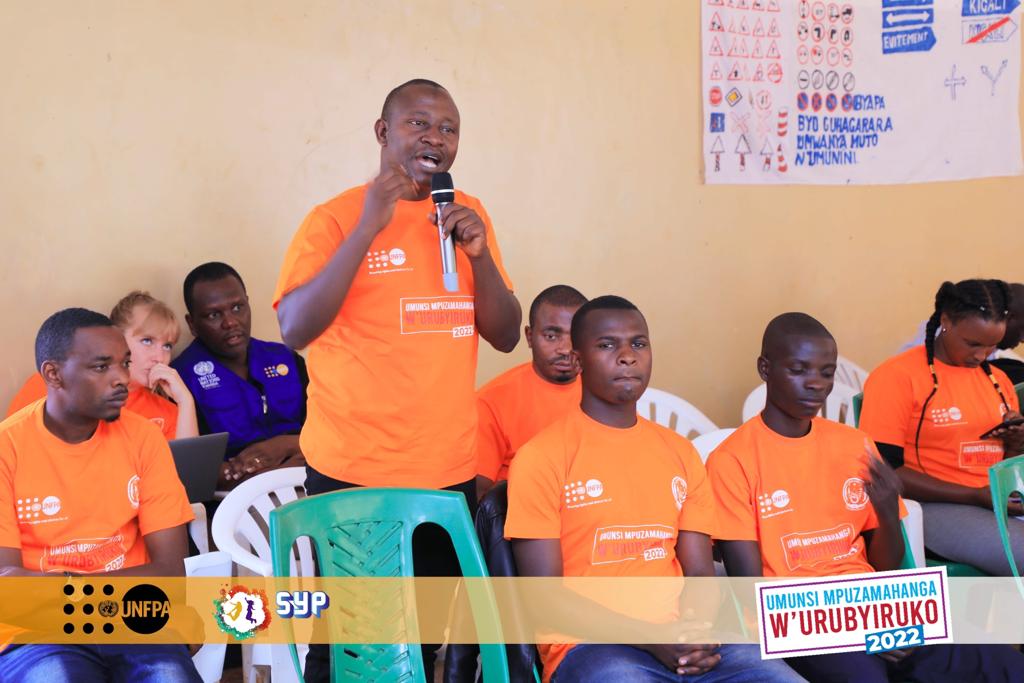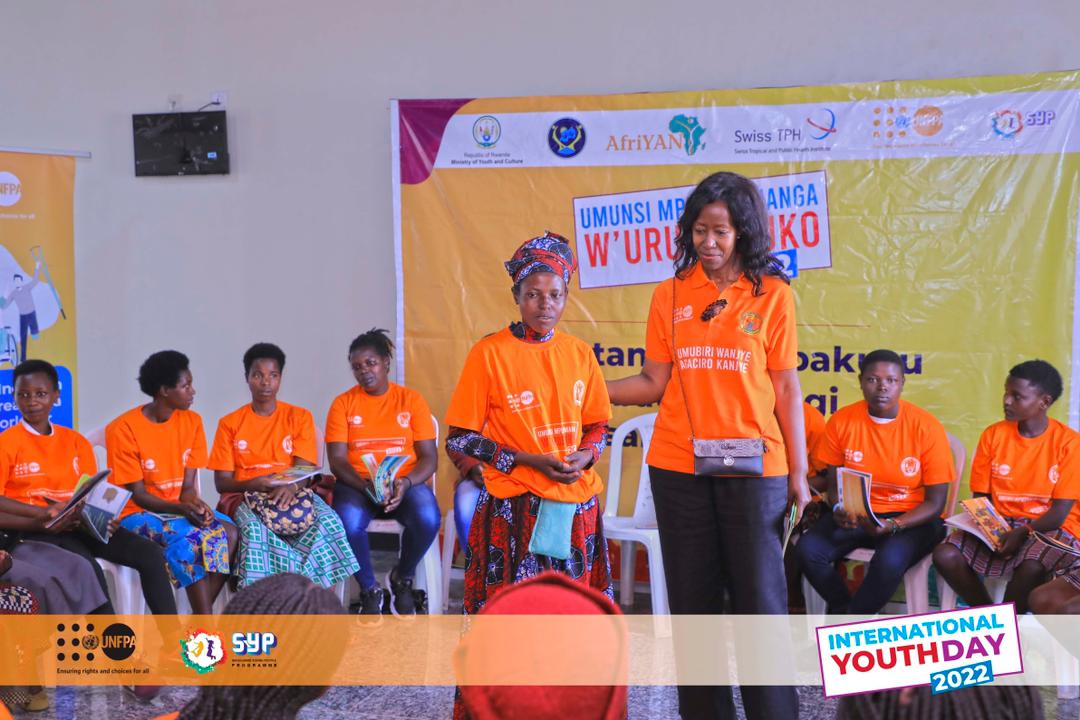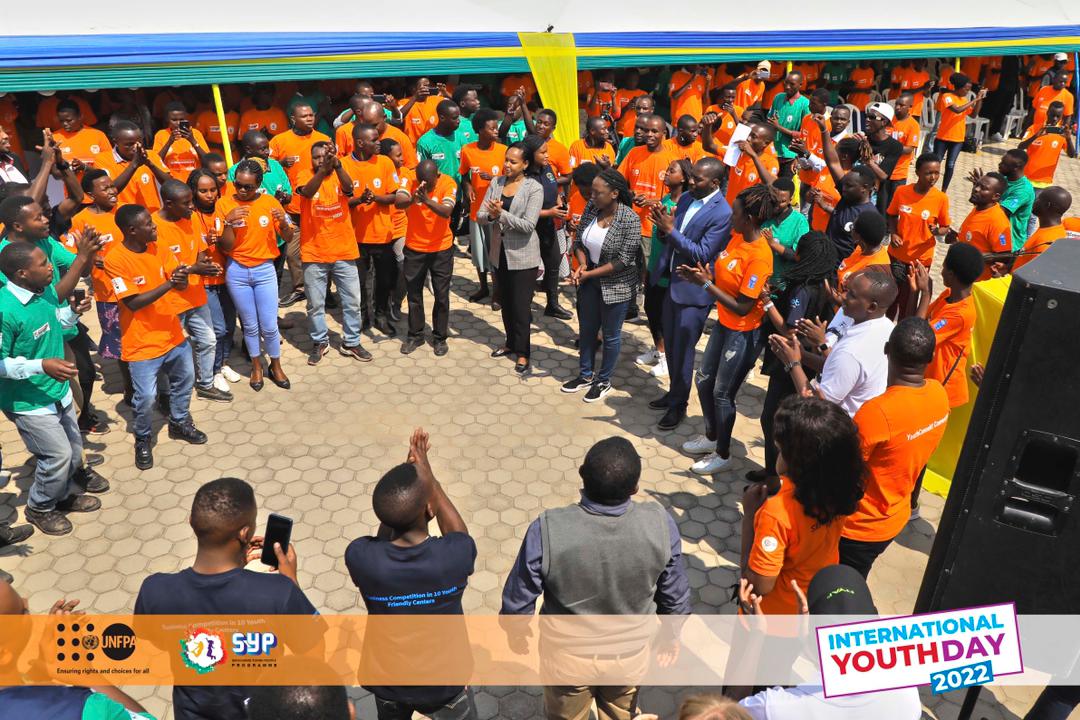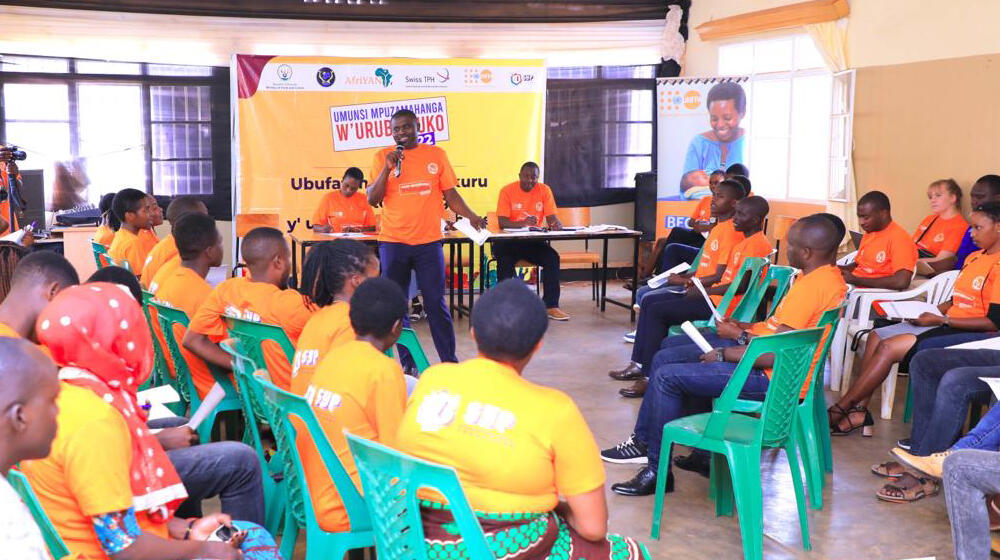“When I was a child and asked my parents about Sexual and Reproductive health, they shied away and did not tell me anything. This is the case for many other families. Some parents do not feel comfortable talking about reproductive health with their children” Said Nishyirembere Xaverine, a parent and elderly representative, Nyamasheke District.
Nishyirembere has always encouraged parents in her community to talk to their children about their sexual and reproductive health. She says that her generation did not get a chance to have the right information because it was never discussed in the family or elsewhere in their communities, thus some parents do not consider discussing sexual and reproductive health with their children as a necessity.
This behavior can result in so many consequences that our young people are facing today, namely teenage pregnancies, HIV transmission, GBV, and other harmful practices.
“Parents do not feel comfortable discussing sexual and reproductive health with their children because sometimes they do not have enough information themselves. And above all, they fear that discussing sexual issues with their children will push them to engage in sexual actions at a young age,” said Nishyirembere.
Effective parent-adolescent communication on sexual health issues is a factor that can influence adolescents towards adopting safer sexual behavior and therefore prevent teenage pregnancies and sexually transmitted infections.
UNFPA encourages and supports increased levels of communication between parents and adolescents on sexual and reproductive health and rights (SRHR)
To celebrate International Youth Day this year, UNFPA in collaboration with the National Youth Council and local supportive structures, brought together young and older generations (parents, youth leaders, community leaders, religious leaders, and district officials) in intergenerational dialogues to discuss the importance of Parent-Child Communication (PCC) and Parent-Adolescent Communication (PAC) on SRHR and Comprehensive Sexuality Education and how they can be enhanced in already existing community structures.
“For effective communication on sexual and reproductive health issues, parents and adults need to be educated on their role as primary sources of information to their children.” Said Dusenge Marie Grace, Executive Committee Representative at the National Youth Council
Under the theme “Intergenerational Solidarity: Creating a World for All Ages”, The organized dialogues between adults and young people, provided an opportunity to understand adolescents at various stages of development, their rights and values, and the importance of family and culture.

In an intergenerational dialogue held in Western province, a Parent encouraging colleagues to talk to their children about SRH. Photo Alain Mwizerwa @UNFPA/August 2022
Parents were reminded that it is their responsibility to provide their children with the right SRH information from a young age and to create an environment where children are free to talk and ask questions.
“When it comes to Sexual and Reproductive Health and Rights, there is a big intergenerational gap: from different cultural norms, barriers to youth-friendly SRHR services, to a missing communication within different generations on SRHR. We must collaborate to foster successful and equitable intergenerational relations and partnerships to ensure Leaving no one behind” says Therese Karugwiza, Adolescent and Youth Unit Leader, UNFPA

Therese Karugwiza, UNFPA Adolescent and Youth Unit Leader, talking to parents during the intergenerational dialogue in Ruhango District. Photo Alain Mwizerwa @UNFPA/August 2022
Adolescents and parents both benefit when Parent-Child Communication (PCC) about sexuality is open and honest. There are both immediate and long-term improvements in sexual and reproductive health for the adolescent and relational benefits for both the parent and the adolescent. These benefits extend beyond the family environment to the community as a whole by providing for healthier, more stable family units and individuals.
“SRHR is not only the responsibility of youth, it is mainly the responsibility of a parent to give the right information to their children. If you don't, they will get information from other sources like social media, that cannot be trusted. Us, parents, are the best source” Said Mukankusi Athanasie, the Vice Mayor in charge of social affairs in Nyamasheke District
She also mentioned the role of male parents in providing SRHR information to not only young girls but also boys.
“This is not the role of mothers only. Fathers need to take responsibility in the SRHR education and share information with their children both girls and boys. Your sons need to know their bodies too, they need the right SRH information, and it is your responsibility to provide that. “She added.
Young people need to be empowered with knowledge in order for them to make informed choices concerning Sexual and Reproductive Health and Rights. For that, Parents’ and other adults’ discussion with adolescents on sexual and reproductive health issues is imperative.
Through these discussions, parents, caregivers, and elders have the opportunity to dispel myths and misinformation about sex by communicating with young people and providing them with the right SRHR information.
Together, we can help our young people to plan for a happy and safe future.



